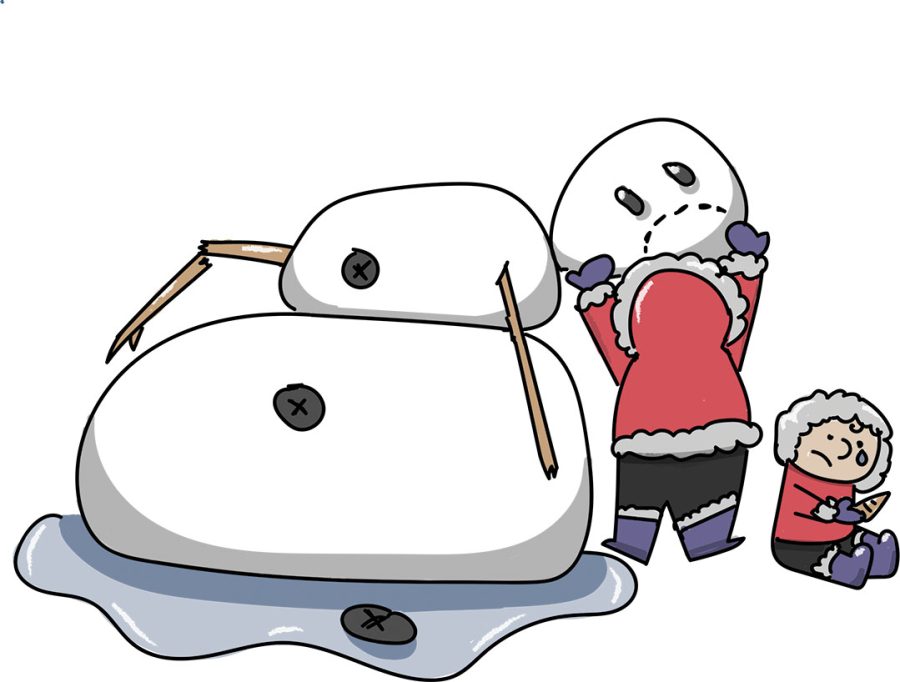Blue Christmas
Photo by Bergan Zebrauskas
January 26, 2022
It’s that time of the year again: we’re waking up before the sun rises, and getting home long after it has set. Classwork is piling up and consuming all of our free time. With finals looming closer and waiting to crush us, everything can be so overwhelming, and it can feel impossible to get out of bed every morning. Just the thought of having to live the same day over and over again until December 22nd can be daunting. It’s too much. Even when we get a two-week break from school work, the holidays can still be hard on some people, which can make every day of this season dreadful. All of these factors can lead to one thing: seasonal depression. Most people experience seasonal depression without even stopping to wonder if it’s something more. Is it something more? Is it a piece of a bigger puzzle that we’re all missing?
When facing seasonal depression, many don’t take it seriously. They think that they’re sad because it’s dark out, or because finals are stressing them out. They think they’re faking it and don’t need help because everyone experiences it at one point or another. They think other people’s mental health needs more attention than theirs. However, all of these things are far from the truth. Even though our Vitamin D levels are dropping from the lack of sun in the winter, which can cause a decrease in serotonin and dopamine levels, there’s so much more to seasonal depression than meets the eye.
Frequently, seasonal depression is just a cover up for long-term depression that can be easier to hide any other time. It just so happens that these flare-ups occur during the winter, which can make you think that it’s just seasonal and it’ll go away as soon as the snow melts. It’s easy to brush off all of the warning signs and say that you don’t need help because it’s not “real depression,” but the more you mistreat seasonal depression, the easier it is for it to spiral into something more. Don’t simply say that you’re being dramatic or faking it when depression is a real issue that deserves proper treatment. Depression, and any other mental illness, comes in many shapes and sizes and can affect anyone, and everyone deserves to get the help they need.
One of the major differences between seasonal depression and long-term depression is the accessibility of help. Even when treating long-term depression, it’s a lengthy process to find a psychiatrist, go to therapy, find methods or medications that work for you, and begin to heal. Depression of any kind can be scary, especially for teens when we don’t know what it is or how to treat it. It’s even more difficult when you don’t know that you suffer from seasonal depression or you don’t have the resources to reach out and get help.
Not only does there need to be more education around seasonal depression to help break the stigma surrounding it, but people need to understand that their feelings are valid and they don’t need to suffer every year because they think their depression will go away. Even if your depression is simply because of the sun setting at four p.m. and because finals are stressful, that does not make it any less worthy of help. People care about you and want to help you. The frequency of your feelings and emotions doesn’t relate to the severity of them.





